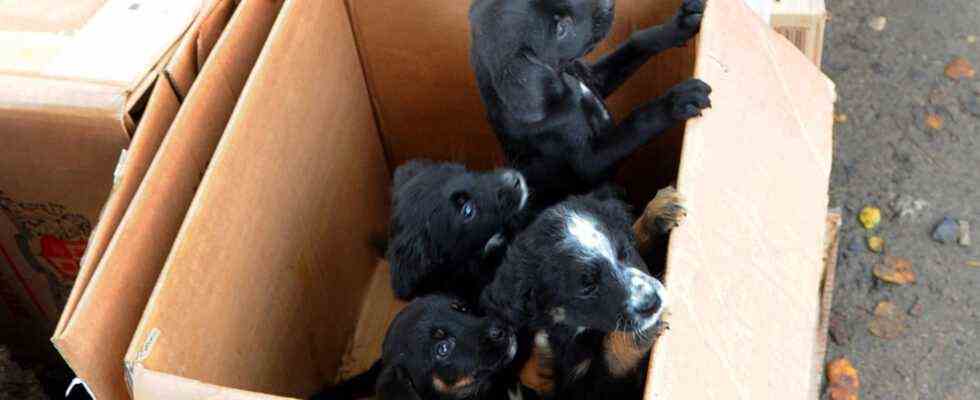European magazine
Status: 11/13/2021 11:39 a.m.
In Poland, the illegal trade in puppies has become a lucrative business. The animals are often raised under excruciating conditions and sold all over Europe. An animal protection law has fatal consequences.
With breeder Anna Bogucka you can guess why so many fall in love with puppies: Big googly eyes look at the visitors – and the little puppies do a lot of nonsense. Bogucka has been running a dog breed near Warsaw for almost 40 years. With passion, as she says: “Breeding requires a lot of specialist knowledge about the anatomy, genetics and history of the breed and the specifics of puppy origins,” she explains. The dogs look healthy. And she sells them with valid papers. But that is far from everywhere in Poland.
Out and about with a hidden camera in one of the largest Polish markets, around 60 kilometers away from the capital Warsaw. You can buy almost anything here. Also pets: large dogs, small dogs, mixed breeds and pedigree dogs. A breeder normally charges between 500 and 2000 euros for pedigree animals – this is much cheaper here. And selling dogs is often selling the trunk.
Poland as a European hub for illegally bred dogs
Olaf Bock, ARD Warsaw, European magazine, 11/14/2021
A few weeks old puppies are for sale in a corner. The animals look scared. There is no doubt: you should still be with your mother, the sale seems to be illegal. A few meters away, mixed breeds are offered: They are said to cost between 100 and 200 euros, but there are no papers that would provide information on the state of health, for example.
The whole area is private, the sale of animals is generally permitted. Mateusz Janda, head of the state animal protection police, has been concerned about such markets for many years. They favor illegal dog breeding, which is a big problem in Poland. The animals are often kept, raised and sold under excruciating conditions. He has already dug entire dog factories. He shows us disturbing recordings in his office: “The animals are transported from there to all of Poland and Europe. What a drama. These animals were housed in garages and tin houses and had no movement, couldn’t play and never got out of their cages. ”
Illegally bred dogs are often snatched away from their mothers at an early age. The state of health in which they are sold remains uncertain.
Image: picture alliance / blickwinkel / J
A reform with consequences
It is estimated that there are now several thousand breeding farms in Poland – too many, says Janda. This was made possible by a new animal welfare law that was passed nine years ago. Actually, illegal dog breeding should be combated with it. For this purpose, federal structures for monitoring and decentralized approval procedures for animal breeding were introduced.
But the law now also allows small traders to sell pedigree animals – and because of the high number there are almost no controls. In practice, this leads to the fact that many animals are not kept in a species-appropriate manner. The documents are also easy to forge.
A hub for all of Europe
The fact that Poland of all places is such a hotspot for the puppy trade has to do with its geographical proximity to Western Europe. And there are no controls to be feared at the EU’s internal borders. “Some dealers organize themselves in groups, buy puppies for 200 or 250 euros, which are then brought to Germany, the Netherlands, France and Norway. To all of Europe, actually.”
Janda reports that the demand for dogs has increased due to the corona pandemic. As a remedy for loneliness – in addition, even during curfews, you were often allowed to go outside the door with a dog. The situation will change little for the time being, fears Janda. On the contrary: “As long as our Polish Parliament and the legislators do not include restrictive provisions in the Animal Welfare Act that prohibit the breeding of this type of dog, this problem will continue to increase.”
You can see these and other reports in Europamagazin – on Sunday at 12:45 p.m. in Das Erste.

